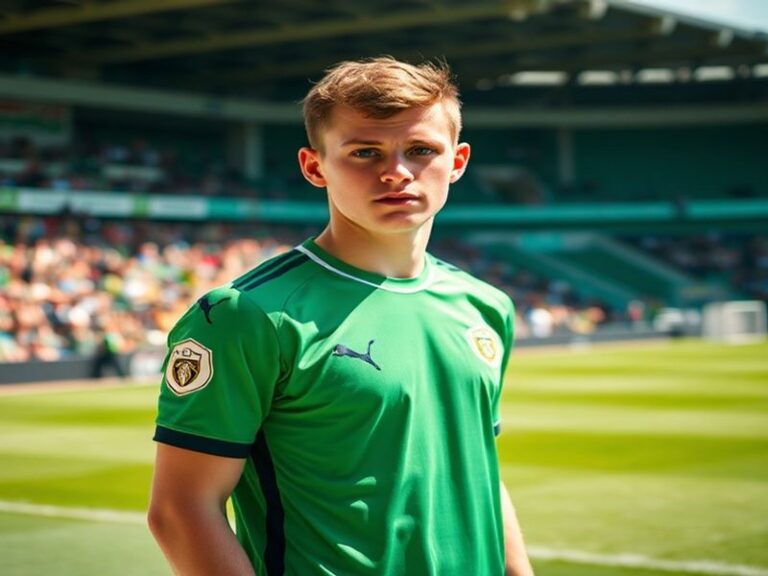Charlotte vs Inter Miami: The MLS Match That Became a Metaphor for Global Collapse
Charlotte vs Inter Miami: When a Southern Suburb and a Retirement Home Try to Play Football for the Future of Earth
There are moments when one sport, played in a stadium built on reclaimed swamp land, seems to contain the entire geopolitical temperature of the planet. Saturday night’s Charlotte-Inter Miami clash was one of them—an MLS fixture so freighted with symbolism that even the VAR booth looked vaguely embarrassed. On one side, Charlotte FC, an expansion team still smelling of fresh paint and municipal bond issues. On the other, Inter Miami, David Beckham’s pastel fever-dream, whose average squad age is roughly equal to the Biden cabinet and whose away support travels mostly on Carnival cruise vouchers.
To the untrained eye, it was just 22 men sweating through North Carolina humidity. To the rest of us—those who’ve watched the world’s superpowers outsource diplomacy to TikTok—this was a proxy war between two competing models of 21st-century power projection. Charlotte represents the traditional American growth formula: throw tax credits at a problem until it sprouts chain restaurants and a light-rail stop. Miami opts for the flashier route: launder enough foreign capital to make the city’s sea-level rise look like a real-estate opportunity. If the Cold War was fought with missiles and manifestos, its late-capitalist sequel is fought with designated players and shell corporations.
Global Implications, or How to Weaponize a Free Kick
European scouts hovered like vultures above a wounded wildebeest, hoping to spot a winger they can flip to Fulham for triple the GDP of Malta. Meanwhile, Qatari streaming services—still high on World Cup fumes—bid astronomical sums for the broadcast rights, proving once again that sportswashing is the new oil. Somewhere in Beijing, a functionary at the Ministry of Soft Power took notes: “Step 1: Buy aging star. Step 2: Rename stadium after panda diplomacy. Step 3: Profit?”
The match’s carbon footprint alone could have powered a small Nordic country for a week, what with the private jets ferrying South American influencers and the air-conditioning units blasting Arctic air onto a pitch that nature intended to be a marsh. Greta Thunberg tweeted a single emoji—🔥—which was interpreted either as climate grief or tactical commentary on Miami’s high press. Either way, the algorithm loved it.
Human Nature, Now Available in Extra Time
Charlotte’s ultras, a group calling themselves the Mint Street Hooligans (named after a bank, because branding), unveiled a tifo depicting the Queen City as a medieval fortress besieged by flamingos. The irony, of course, is that most of the flakiest flamingos in the stadium were wearing Gucci loafers and asking if the ceviche was gluten-free. In the 73rd minute, a Miami fan—sunburned the color of diplomatic embarrassment—attempted to storm the pitch but was foiled by his own linen trousers. Security escorted him out while he shouted about Article 5 of NATO. No one had the heart to explain he was citing the wrong league.
On the field, Charlotte’s teenage striker scored a goal so aesthetically pleasing it briefly crashed the NFT marketplace where it was instantly minted. Miami equalized through a 36-year-old Uruguayan whose knees sound like bubble wrap but whose left foot still negotiates better contracts than the UN. The game ended 1-1, which, fittingly, is the exact scoreline the planet seems to be settling for on climate, inequality, and vaccine distribution.
Final Whistle, or The Part Where We Pretend There’s Hope
And so the draw went into the record books, another data point for the historians who will one day wonder how civilisation managed to schedule apocalypse between weekend fixtures. Charlotte’s fans filed out humming “Sweet Caroline,” Miami’s limped toward rideshares named after Nordic deities, and somewhere offshore a hurricane quietly sharpened its itinerary. The world keeps spinning, the sea keeps rising, and MLS keeps expanding—because if we’re going down, we might as well do it with a sponsored hydration break and a light show.
In the end, the match proved what every international correspondent already knows: never underestimate humanity’s ability to turn existential dread into merchandising opportunities. Tune in next week when Cincinnati hosts Vancouver in a game that will almost certainly determine the fate of the Arctic ice shelf. Probably.







